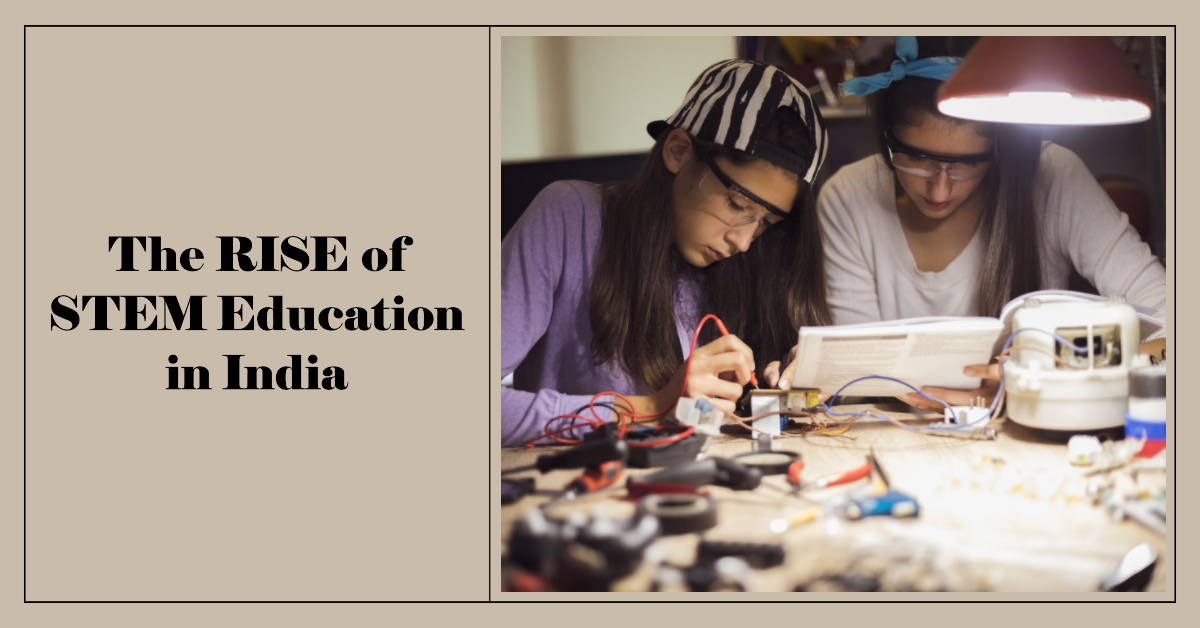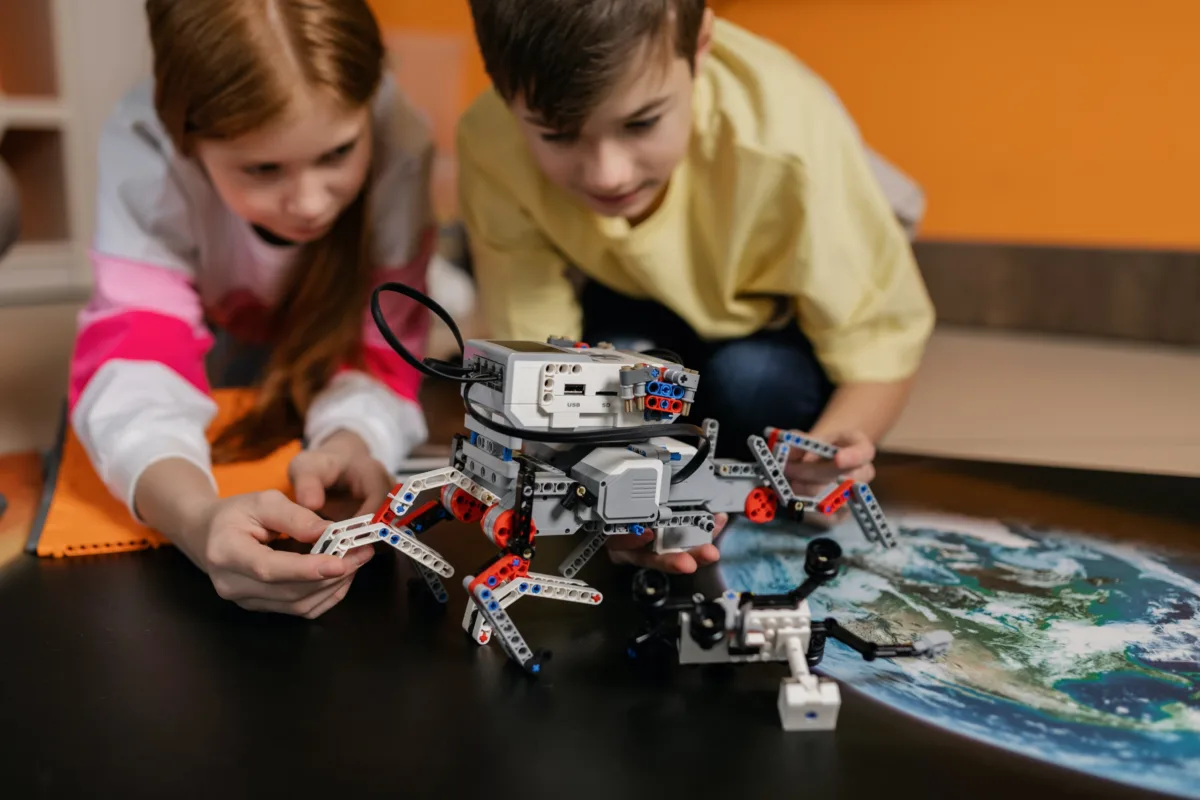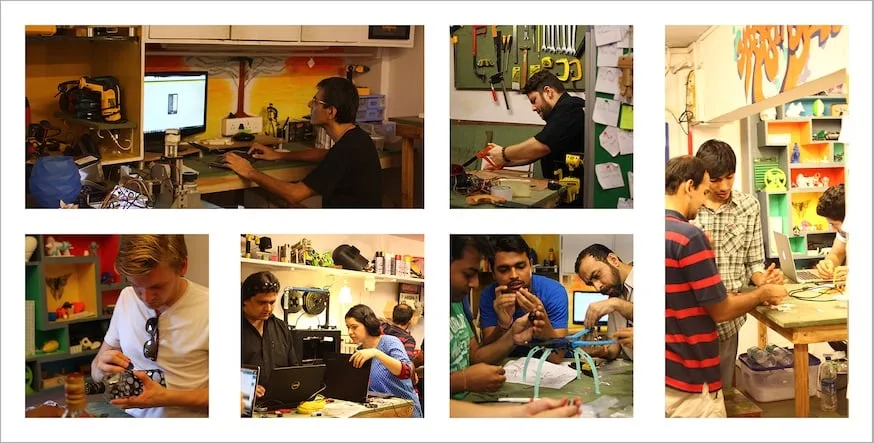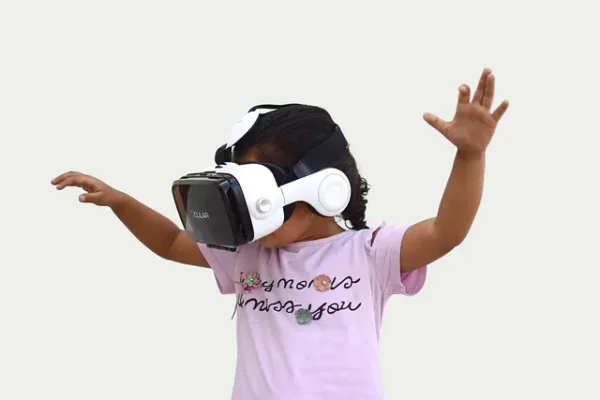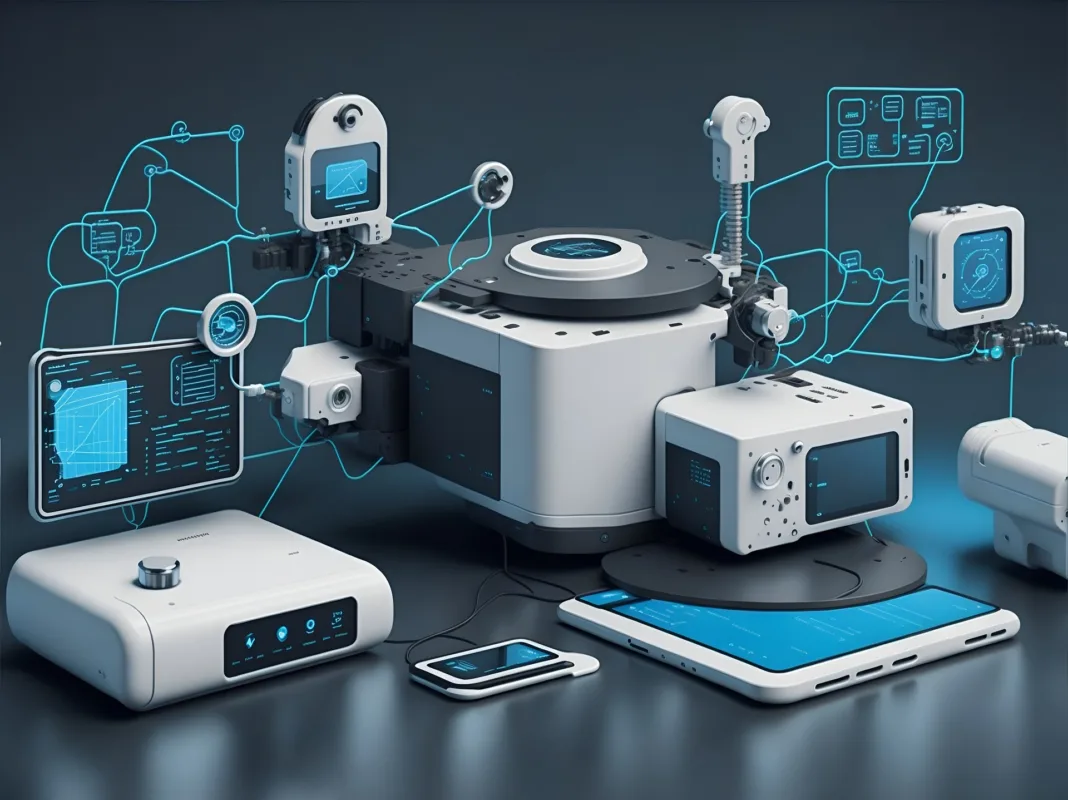Emerging Technologies: Unveiling Future Opportunities for Today’s Young Minds
Introduction
Have you ever wondered how the gadgets we use every day work? Or how technology is changing the way we communicate, learn, and even play? In this post, we’re diving into a realm of innovation and discovery, where you’ll get a glimpse of how technologies are shaping our world and the limitless opportunities they offer.
Importance
Technology is like a magic wand that turns dreams into reality. From coding to robots, these technologies aren’t just about screens and buttons; they’re tools that can help us solve complex problems, create incredible art, and even heal the planet. Understanding these technologies can open doors to careers that don’t even exist yet and enable us to make a positive impact on the world around us.
Did you know that even young people like you are changing the world with technology? Take Ananya Chadha, for instance. At just 14, she created a mobile app to help people with disabilities communicate. Or consider Gitanjali Rao, who at 15 invented a device that detects lead in water! These amazing stories show that age doesn’t define innovation; curiosity and passion do.
Do you also want to make an impact in the world? We are here to help you in every aspect. Let us take a deep dive in the field of Emerging Technologies.
Okay, before we move further, let us take an overview of key terms in emerging technologies and their definition.
Key Concepts
- Algorithm-An algorithm is like a recipe for computers. It’s a set of step-by-step instructions that tell a computer how to solve a problem. Just like you follow a recipe to bake cookies, computers follow algorithms to perform tasks.
- Virtual Reality (VR)-Imagine putting on special glasses and suddenly finding yourself inside a video game or a faraway place. That’s virtual reality! VR is a technology that creates lifelike experiences in a computer-generated world.
- Augmented Reality (AR)-With augmented reality, your real world gets an exciting upgrade. AR adds computer-generated images, sounds, or information to what you’re seeing. It’s like magic glasses that make your surroundings even more interesting.
- Coding-Coding is like giving instructions to a computer using a special language. It’s how you tell a computer what to do. Just like learning a new language, coding lets you create cool programs, apps, and games!
- Robot-A robot is a machine that can do tasks on its own. Some robots are as small as your hand, while others can be as big as a car! They can be controlled by people or programmed to work independently.
- Artificial Intelligence (AI)-Artificial Intelligence, or AI, is when computers are smart enough to think and learn like humans. They can understand language, play games, and even help doctors diagnose illnesses faster.
- Internet of Things (IoT)-Imagine your toys, lights, and even your fridge talking to each other! The Internet of Things is all about everyday objects connecting to the internet and sharing information. It’s like a super-smart network of things!
- 3D Printing-3D printing is like creating objects from thin air! It’s a technology that builds things layer by layer using special materials. You can print toys, jewelry, and even tools!
- Data Science-Data science is like being a detective for numbers. It’s all about collecting, analyzing, and finding patterns in data to discover new insights and make better decisions.
- Renewable Energy-Renewable energy is the power of the future! It comes from sources like the sun and wind, which won’t run out. It’s a clean and green way to power our homes and gadgets.
- Ethical Hacking-Ethical hackers are like the good guys of the computer world. They test computer systems to find and fix security flaws before bad hackers can use them for harm.
- Genomics-Genomics is like reading the story of life in DNA. It’s all about studying the genes and genetic information that make living things unique.
- Clean Energy-Clean energy is like using nature’s superpowers to power our world. It comes from sources like sunlight, wind, and water, and it’s better for the environment.
- Nanotechnology-Nanotechnology is all about working with super tiny things, even smaller than a speck of dust! It’s like building incredibly small tools to do amazing tasks.
- Biotechnology-Biotechnology is like using science to create cool things from living organisms. It can be making medicine, growing better crops, or even creating new materials.
- Quantum Computing-Quantum computing is like having a super-fast and super-smart computer. It uses the power of tiny particles called quantum bits to solve complex problems that regular computers struggle with.
- Machine Learning-Machine learning is like teaching computers to learn from examples. Just like you learn to recognize animals by seeing lots of pictures, computers use data to make predictions and decisions.
- Computer Vision-Computer vision is like giving computers the ability to see like humans. It’s how computers understand images and videos, like recognizing faces in photos or cars on the road.
- Natural Language Processing (NLP)-Natural language processing is like teaching computers to understand human language. Computers can read, understand, and even chat with you like a friend!
- Robotics-Robotics is all about creating and controlling robots. It’s like being a puppeteer for machines, making them move, think, and do tasks.
- Neural Networks-Neural networks are like computer brains inspired by real brains. They’re made up of interconnected “neurons” that help computers recognize patterns and make decisions.
- Internet Safety-Internet safety is like learning to cross the digital road safely. It’s about protecting your personal information, avoiding online dangers, and being a responsible digital citizen.
- Encryption-Encryption is like putting your message in a secret code. It scrambles information so that only the right person with the “key” can read it.
- Virtual Assistant-A virtual assistant is like having a helper inside your device. It can answer questions, set reminders, and even tell jokes—all by listening to your voice!
- Cybersecurity-Cybersecurity is like being a digital superhero. It’s about keeping computers, networks, and information safe from hackers and cyber threats.
- Renewable Energy-Renewable energy is like using nature’s superpowers to power our world. It comes from sources like sunlight, wind, and water, and it’s better for the environment.
- Drones-Drones are like high-tech flying robots. They can take pictures, deliver packages, and even help scientists explore remote places.
- Cloud Computing-Cloud computing is like having a magic storage place on the internet. It lets you access files, apps, and data from anywhere, without needing to carry everything with you.
- 3D Design and Printing (3DDP)-3D design and printing is like creating objects layer by layer, almost like magic! You can turn your ideas into real things you can touch and hold.
- AI Ethics-AI ethics is like making sure computers play fair. It’s about using AI responsibly and making decisions that consider the well-being of humans and society.
- Autonomous Vehicles-Autonomous vehicles are like cars that drive themselves. They use sensors and smart technology to navigate roads and get you safely to your destination.
- Biotechnology-Biotechnology is like using science to create cool things from living organisms. It can be making medicine, growing better crops, or even creating new materials.
- Space Technology-Space technology is like building tools to explore the universe. It’s how we send rockets, satellites, and robots to study planets, stars, and beyond.
- Quantum Mechanics-Quantum mechanics is like uncovering the secrets of the tiniest particles. It’s a branch of science that explores how the smallest building blocks of the universe behave.
- Internet of Things (IoT)- The Internet of Things is like connecting everyday objects to the internet. It’s how your watch talks to your phone or your fridge tells you when it’s time to buy milk.
- Wearable Technology– Wearable technology is like smart accessories you wear, like fitness trackers or smartwatches. They can count your steps, monitor your health, and even show messages!
Now that you are aware of some of the key concepts, let’s explore 20 emerging technologies that are challenging human potential.
-
Programming
At the heart of the digital revolution lies the art of programming. Mastery in coding logic transcends syntax and languages; it involves cultivating problem-solving skills that enable developers to create elegant and efficient solutions. Whether it’s crafting software applications, developing responsive websites, or engineering complex systems, a solid foundation in programming is the cornerstone of technological advancement.
How it is used in daily life: Programming helps automate tasks like setting reminders, sending emails, and turning lights on/off at home.
Future Opportunities: Software Developer, App Developer, Web Developer
How to gain mastery in coding logic? Here are three popular resources:
- Codecademy: Codecademy offers interactive coding lessons in various programming languages. It’s beginner-friendly and provides hands-on practice, making it an excellent starting point for mastering coding logic.
- LeetCode: LeetCode focuses on algorithmic and coding challenges that help you refine your problem-solving skills. It’s a fantastic resource for those preparing for technical interviews and looking to delve deeper into coding challenges.
- HackerRank: HackerRank offers coding challenges and competitions in a variety of domains. It’s a great platform to enhance your coding skills and compete with a global community.
-
Block-Based Coding: Visual Way to Learn Programming Concepts
Block-based coding introduces programming concepts through a visual interface, making it accessible even to beginners. This approach fosters creativity by allowing individuals to snap together code blocks, creating interactive projects without the intricacies of traditional syntax. As technology becomes more intertwined with everyday life, this method empowers a wider range of innovators to participate in the development process.
Future Opportunities: Game Developer, UI/UX Designer, Animator
How to gain mastery in block based coding? Here are three popular resources:
- Scratch: Scratch is a visual programming language designed for beginners and kids. It allows you to create interactive stories, games, and animations using a simple block-based interface.
- Blockly: Blockly is a library for building visual programming editors. It’s used by various educational platforms to provide a visual way to learn programming concepts.
- Tynker: Tynker is another platform that uses block-based coding to teach programming. It’s particularly popular in educational settings and provides engaging projects for learners of all ages.
-
Python: Master a Versatile Programming Language
Python is used to analyze large datasets, helping us make sense of information in fields like finance, healthcare, and more.
Python’s rise in popularity can be attributed to its versatility and readability. Learning Python not only equips individuals with a language that’s widely used in web development, data analysis, and automation but also paves the way for diving into more complex domains such as artificial intelligence and machine learning.
Future Opportunities: Data Scientist, AI Engineer, Research Scientist
How to master Python? Here are three top resources:
- Coursera: Coursera offers a wide range of Python courses from universities and institutions around the world. Courses like “Python for Everybody” provide a comprehensive introduction to the language.
- Python.org: The official Python website provides extensive documentation, tutorials, and resources for learning Python. It’s a valuable reference for both beginners and experienced programmers.
- Codecademy’s Python Course: Codecademy’s Python course is a hands-on way to learn Python syntax and concepts. It’s well-structured and suitable for beginners.
-
Electronics: Hands-On Circuit Integration
Electronics enable the functioning of smartphones, TVs, smartwatches, and other gadgets we use daily.
Understanding electronics is about more than circuits; it’s about the technology that powers our modern world. From smartphones to medical devices, electronics form the backbone of various industries. Acquiring skills in circuit integration and troubleshooting sets the stage for a career in innovation and problem-solving.
Future Opportunities: Electronics Engineer, IoT Specialist, Embedded Systems Designer
Here are three of the best tools and resources for learning each of the technologies mentioned:
- Arduino: Arduino offers an open-source platform for building electronics projects. Their website provides tutorials, documentation, and a supportive community to help you learn and create.
- CircuitLab: CircuitLab is an online platform that allows you to design, simulate, and share electronic circuits. It’s a great tool for hands-on learning without the need for physical components.
- Electronics Hub: Electronics Hub provides tutorials, projects, and resources for learning electronics from the basics to advanced topics. Their content is suitable for beginners and enthusiasts alike.
-
IoT: Connect and Innovate With Smart Devices
IoT connects devices in our homes, allowing us to control lights, thermostats, and even kitchen appliances remotely.
The Internet of Things (IoT) connects everyday objects to the digital realm, creating a network of smart devices that enhance efficiency and convenience. Those skilled in IoT can design and develop connected devices, paving the way for transformative solutions in healthcare, agriculture, and urban planning.
Future Opportunities: IoT Developer, Network Engineer, Automation Specialist
- IoT for Beginners (Coursera): This Coursera course by the University of California, Irvine, introduces you to IoT concepts and technologies. It’s a great starting point for understanding the foundations of IoT.
- Raspberry Pi: Raspberry Pi is a versatile single-board computer that’s popular for IoT projects. The official Raspberry Pi website offers tutorials and resources for getting started with building IoT applications.
- IoT Fundamentals (edX): This edX course by IBM provides an in-depth understanding of IoT concepts, platforms, and applications. It’s suitable for those looking to dive deeper into the field.
-
Robotics: Design, Program, and Control Robots
Robots are used to assemble cars, vacuum floors, and perform tasks that save time and effort.
The field of robotics combines hardware and software to create intelligent machines that can perform tasks autonomously. From manufacturing to healthcare, robots are revolutionizing industries by increasing precision and efficiency. Learning to design and program robots prepares individuals to lead the charge in automation and innovation.
Future Opportunities: Robotics Engineer, Automation Specialist, Control Systems Engineer
- ROS (Robot Operating System): ROS is an open-source framework for building robotics software. The ROS website offers documentation, tutorials, and resources to get started with robot programming.
- RobotShop: RobotShop is an online store that also provides resources for learning robotics. They offer tutorials, guides, and kits for building and programming robots.
- Coursera’s Robotics Specialization: This Coursera specialization by the University of Pennsylvania covers various aspects of robotics, from mechanics to control algorithms. It’s suitable for those seeking a comprehensive education in robotics.
-
3D Design and Printing (3DDP): Turn Imagination into Reality
3D printing lets us create custom phone cases, jewelry, and even replacement parts for household items.
Three-dimensional design and printing bring imagination to life. From rapid prototyping to creating custom products, this technology has the potential to reshape industries. Learning 3DDP provides a toolkit for crafting innovative designs and functional prototypes.
Future Opportunities: Product Designer, 3D Printing Specialist, Prototyping Engineer
- TinkerCAD: TinkerCAD is a web-based 3D design and modeling tool suitable for beginners. It’s easy to use and provides a stepping stone to more complex 3D design software.
- Fusion 360: Fusion 360 by Autodesk is a powerful 3D design and engineering tool. Autodesk offers a comprehensive learning hub with tutorials, courses, and resources for mastering 3D design.
- Thingiverse: Thingiverse is a platform for sharing 3D printable designs. Exploring the wide range of designs available on the platform can give you insights into what’s possible with 3D printing.
-
Artificial Intelligence (AI): Shape the Future with Smart Tech
AI powers virtual assistants like Siri and Alexa that can answer questions, set reminders, and play music.
Artificial Intelligence, once the stuff of science fiction, is now a powerful tool driving real-world applications. Implementing AI algorithms allows individuals to create systems that can learn from data, make predictions, and automate complex tasks, impacting industries ranging from healthcare to finance.
Future Opportunities: AI Engineer, Data Analyst, AI Ethicist
- Fast.ai: Fast.ai offers practical AI courses that focus on real-world applications. Their courses cover a range of AI topics, from deep learning to natural language processing.
- TensorFlow: TensorFlow, developed by Google, is a widely used framework for building and training AI models. The TensorFlow website provides extensive documentation, tutorials, and guides.
- AI for Everyone (Coursera): This Coursera course by Andrew Ng provides a non-technical introduction to AI concepts, its impact, and how to navigate the AI landscape.
-
Machine Learning (ML): Teach Computers to Learn Patterns
ML algorithms help platforms like Netflix suggest movies and YouTube recommend videos.
Machine Learning empowers computers to learn from data and make informed decisions. The ability to build predictive models and analyze large datasets is reshaping industries like marketing, healthcare, and finance, ushering in a new era of data-driven innovation.
Future Opportunities: ML Engineer, Data Scientist, Predictive Modeler
- Coursera’s Machine Learning by Andrew Ng: This iconic course is a staple for learning machine learning. It covers fundamental concepts and practical implementations of ML algorithms.
- Kaggle: Kaggle is a platform for data science competitions and collaborative projects. It offers datasets, notebooks, and tutorials to help you learn and apply machine learning techniques.
- Scikit-learn: Scikit-learn is a Python library that provides tools for machine learning. Its documentation includes tutorials and examples to guide you through various ML algorithms.
-
Computer Vision (CV): Develop Machines That See
Face Recognition: CV is used in facial recognition systems to unlock phones and secure access to devices.
Computer Vision enables machines to interpret and understand visual information from the world around them. This technology underpins advancements in fields like autonomous vehicles, medical imaging, and security surveillance, making it a cornerstone of future innovation.
Future Opportunities: Computer Vision Engineer, Image Analyst, Image Processing Specialist
- OpenCV: OpenCV is an open-source computer vision library that offers a wealth of tools and resources for developing computer vision applications. Their documentation and tutorials are invaluable.
- Coursera’s Convolutional Neural Networks: This Coursera course by Andrew Ng focuses on deep learning techniques for computer vision, including convolutional neural networks (CNNs).
- Udacity’s Introduction to Computer Vision: This course provides a comprehensive introduction to computer vision concepts and practical applications.
-
Natural Language Processing (NLP): Make Machines Understand Language
Chatbots: NLP powers chatbots that assist us with customer service inquiries and answer questions on websites.
NLP bridges the gap between human language and computers. Creating language processing systems allows machines to understand, interpret, and generate human language, with applications ranging from chatbots to language translation.
Future Opportunities: NLP Engineer, Chatbot Developer, Language Data Analyst
- Natural Language Processing Specialization (Coursera): Offered by the National Research University Higher School of Economics, this specialization covers NLP from fundamentals to advanced techniques.
- NLTK (Natural Language Toolkit): NLTK is a Python library for working with human language data. It provides tutorials and resources for understanding NLP concepts.
- Spacy: Spacy is another powerful Python library for NLP. Its documentation includes detailed guides and tutorials for various NLP tasks.
-
Generative AI (ChatGPT, Bard, DALL-E): Create AI That Generates Content
Generative AI creates art, music, and even stories, enhancing our entertainment and creativity.
Generative AI pushes the boundaries of creativity by enabling AI systems to produce new and original content, whether it’s text, images, music, or even entire stories. This technology opens doors to innovation in art, entertainment, and beyond.
Future Opportunities: Creative AI Developer, Content Generation Specialist, Content Creator
- OpenAI API Documentation: For those interested in creating with OpenAI’s models like ChatGPT and DALL-E, the official API documentation provides guidance on usage and integration.
- Fast.ai’s Practical Deep Learning for Coders: This course includes practical lessons on generative models, helping you experiment and build creative AI applications.
- GANs Specialization (Coursera): This Coursera specialization by deeplearning.ai covers Generative Adversarial Networks (GANs) and their applications.
-
Data Science: Extract Insights from Data
Data scientists analyze data to help businesses make informed decisions and spot trends.
Data Science is the art of extracting meaningful insights from vast datasets. As organizations seek data-driven decision-making, data scientists play a crucial role in analyzing, visualizing, and interpreting data to drive innovation and efficiency.
Future Opportunities: Data Scientist, Business Analyst, Data Engineer
- DataCamp: DataCamp offers a wide range of data science courses covering topics from data manipulation to machine learning. It’s a great platform for hands-on learning with real-world datasets.
- Kaggle: In addition to machine learning competitions, Kaggle offers data science tutorials and projects that allow you to apply data analysis techniques to various domains.
- Python for Data Science Handbook: This book by Jake VanderPlas provides a comprehensive guide to using Python for data science, covering libraries like NumPy, Pandas, and Matplotlib.
-
Drones: Navigate Skies and Innovate
Aerial Photography: Drones capture breathtaking aerial photos and videos, perfect for travel memories.
Drones, also known as unmanned aerial vehicles (UAVs), have moved beyond recreational use to play essential roles in fields like agriculture, environmental monitoring, and disaster response. Operating and programming drones, along with analyzing the data they collect, form the basis of careers that redefine how we interact with our environment.
Future Opportunities: Drone Operator, GIS Analyst, Aerial Photographer
- Drone Pilot Ground School: This online course helps you prepare for the FAA Part 107 drone pilot exam, which is necessary for commercial drone operations in the United States.
- DJI Academy: DJI, a leading drone manufacturer, offers educational resources including online courses and tutorials on flying and operating drones.
- Udemy: Udemy offers various courses on drone operation, aerial photography, and mapping using drones. It’s a platform with diverse options to suit your interests.
-
AR/VR: Craft Immersive Digital Experiences
AR/VR lets us virtually explore far-off places and interact with digital environments.
Augmented Reality (AR) and Virtual Reality (VR) offer immersive experiences that merge the digital and physical worlds. These technologies are revolutionizing industries like gaming, education, and real estate by creating interactive simulations and engaging experiences.
Future Opportunities: AR/VR Developer, Game Designer, Simulation Engineer
- Unity Learn: Unity’s official learning platform offers tutorials and courses for creating AR and VR experiences using the Unity game engine.
- Coursera’s Introduction to Virtual Reality: Offered by the University of London, this course provides a foundational understanding of VR technology and its applications.
- Oculus Developer Hub: If you’re interested in VR development, the Oculus Developer Hub provides resources, documentation, and tutorials for building VR experiences.
-
Clean Energy: Power a Sustainable Future
Clean energy sources like solar power generate electricity for our homes, reducing our carbon footprint.
Clean energy technologies are vital in addressing climate change and achieving a sustainable future. Exploring renewable energy options and understanding sustainable solutions is key to shaping the energy landscape of tomorrow.
Future Opportunities: Renewable Energy Engineer, Sustainability Specialist
- Renewable Energy World: This online publication covers news and information about renewable energy technologies, providing insights into the latest developments in the field.
- IRENA’s E-Learning Platform: The International Renewable Energy Agency (IRENA) offers free online courses on renewable energy technologies and their applications.
- Energy.gov: The U.S. Department of Energy’s website offers resources, articles, and educational materials about various clean energy technologies and initiatives.
-
Space Tech: Explore Beyond Earth
Satellite Communication: Space technology enables global communication through satellites orbiting the Earth.
The exploration of space opens new frontiers for humanity. Learning about space systems and satellite technology lays the groundwork for careers that contribute to advancements in satellite communication, Earth observation, and space exploration.
Future Opportunities: Aerospace Engineer, Satellite Systems Engineer, Space Scientist
- NASA’s Learning Portal: NASA provides a range of educational resources, including videos, articles, and interactive lessons, for learning about space technology and exploration.
- ISRO’s Outreach Program: ISRO offers student programs and internships.
- European Space Agency’s Education Office: ESA offers educational resources, projects, and competitions for students interested in space and technology.
- MIT OpenCourseWare: MIT’s OpenCourseWare includes aerospace engineering courses that cover space technology topics, giving you insights into the technical aspects of space exploration.
-
Electric Mobility: Drive the Future of Transportation
Electric Cars: Electric mobility helps reduce pollution by providing eco-friendly alternatives to gasoline-powered vehicles.
Electric vehicles (EVs) are reshaping the automotive industry and transportation as a whole. Understanding EV technology and designing charging infrastructure are essential skills for those who wish to contribute to a greener and more efficient transportation ecosystem.
Future Opportunities: EV Engineer, Mobility Specialist
- Electric Vehicle Basics (Udemy): This Udemy course provides an introduction to electric vehicles, including their components, technology, and impact on transportation.
- EV Learning Center: Plug In America’s EV Learning Center offers a wealth of resources, guides, and information about electric vehicles and charging infrastructure.
- Society of Automotive Engineers (SAE) Electric Vehicle Resource: SAE offers various resources, standards, and publications related to electric vehicles and their technologies.
-
Cyber Security: Safeguard Digital Spaces
Online Safety: Cybersecurity protects our personal information from hackers and ensures safe online transactions.
As our lives become more digital, the importance of cyber security cannot be overstated. Learning about online threats and implementing security measures equips individuals to protect sensitive information and maintain the integrity of digital systems
- Cybrary: Cybrary offers a wide range of cybersecurity courses and resources, from beginner to advanced levels, covering topics like ethical hacking, network security, and more.
- OWASP: The Open Web Application Security Project (OWASP) provides resources, tools, and documentation for learning about web application security.
- Hack The Box: Hack The Box is an online platform that offers practical labs and challenges to improve your ethical hacking and cybersecurity skills.
-
Genomics/ Genetics: Decode the blueprint of life
Personalized Medicine: Genomics helps doctors tailor treatments to an individual’s genetic makeup for better health outcomes.
Genomics is the study of an organism’s complete set of DNA, including its genes and non-coding sequences, to understand genetic variation and function. It plays a crucial role in unraveling the genetic basis of diseases, personalized medicine, and evolutionary biology. Advances in genomics have transformed healthcare, genetics research, and biotechnology.
Future Opportunities: Geneticist, Bioinformatician, Research Scientist
- Coursera’s Introduction to Genetics and Evolution: This course, offered by Duke University, provides an introduction to genetics and evolutionary biology, including the basics of DNA, genes, and inheritance.
- NHGRI’s Talking Glossary of Genetic Terms: The National Human Genome Research Institute provides an interactive glossary to help you understand key genetic terms.
- Genome.gov: The National Human Genome Research Institute’s website offers educational resources, articles, and information about genomics and genetics.
Now that you know 20 plus emerging technologies, let us understand what it takes to start a career in any of these fields:
Soft Skills
- Curiosity and Interest: The most important thing is to be curious and interested in technology! Having a desire to learn and explore these exciting fields will fuel your journey.
- Patience and Perseverance: Learning about emerging technologies might sometimes be challenging. Patience and the willingness to keep trying, even if things get tough, are essential.
- Internet Literacy: Understanding how to browse the internet, search for information, and use online resources will be extremely valuable in your learning journey.
- Willingness to Experiment: Don’t be afraid to try new things! Experimentation and hands-on practice are great ways to learn coding, robotics, and other technologies.
- Basic Coding Understanding: For technologies like coding, robotics, AI, and more, having a basic understanding of coding logic will be immensely helpful.
- Resource Exploration: Knowing how to find and use online resources, like tutorials, videos, and articles, will allow you to learn at your own pace.
- Problem-Solving Attitude: Approach challenges with a positive attitude and a willingness to find solutions. Problem-solving is at the heart of technology exploration.
- Adaptability: Remember, technology is always changing. Being adaptable and open to new ideas will serve you well as you explore these evolving fields.
- Creativity: Many emerging technologies require creative thinking. Don’t hesitate to come up with new ideas and approaches to tackle problems.
Fundamental Skills
- Math Basics: Having a grasp of basic math concepts, including arithmetic, geometry, and algebra, will help you understand algorithms, data analysis, and more.
- Language Skills: Strong reading and language skills are important for understanding guides, tutorials, and technical documentation related to these technologies.
- Critical Thinking: Being able to think critically and solve problems is key. These technologies often involve creative thinking to come up with new solutions.
- Basic Computer Skills: Familiarity with using computers, laptops, and mobile devices is essential. You should know how to navigate through different software and applications.
- Online Learning: Being open to learning from online platforms, courses, and tutorials can give you access to a wealth of knowledge from experts.
Roadmap
Setting foot in the realm of emerging technologies could be confusing and challenging as the application of technologies are unknown and new to humanity. To ensure that you don’t get troubled with the vastness of this domain, it is better to have mentors who can share valuable insights, show a structured path, and help you reach your goals fast. While working on any of the technologies, make sure you take assistance from any or all of these options:
- Mentorship and Guidance: Having a teacher, mentor, or older sibling who can guide you and answer questions can be a great support as you learn about these technologies.
- Hands-On Projects: Engage in hands-on projects related to each technology. Practical experience is one of the best ways to solidify your understanding.
- Join Clubs or Groups: Joining clubs, groups, or online communities focused on technology can provide you with a platform to share ideas, learn from others, and collaborate on projects.
- Curated Learning Path: Consider following a curated learning path or syllabus that gradually introduces you to these technologies, starting with the basics and moving to more complex concepts.
If you are excited for this journey and need handholding, join us!
About 10xTechClub
10xTechClub is an emerging tech learning centre for school students. We’re on a mission to empower the next generation of innovators and thinkers by making emerging technologies accessible and exciting for young minds. Through our engaging and informative content, we’re bridging the gap between curiosity and knowledge, helping school students discover the endless possibilities that technologies like programming, robotics, AI, and more can offer.
Our after-school Premier Accelerator Program teaches 10+ emerging technologies and future skills through hands-on project-based learning for real-world success. At our learning centre, we run hackathons, challenges, provide industry mentorship,
At our offline centre, we integrate emerging technologies, entrepreneurship, growth mindset, and design thinking. We also help discover career interest, thus preparing for a high-paying career of your choice. Join us in igniting the spark of creativity and learning, shaping a world where every student can be a tech-savvy trailblazer.
Conclusion
Feeling inspired? Take the first step by exploring the technology that excites you the most. Whether it’s coding, robotics, or clean energy, remember that curiosity and learning go hand in hand. Let’s embark on a journey of discovery together!


